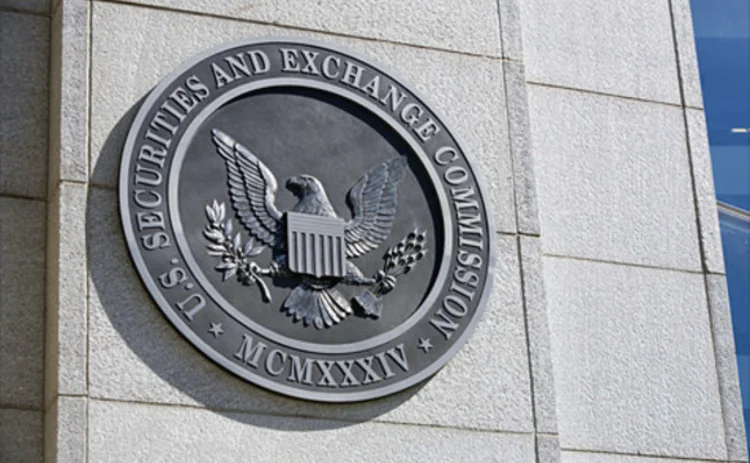SEC Stays Vague on Derivatives Regulation Timeframe

The US Securities Exchange Commission (SEC) has released a document detailing the order in which it desires incoming regulation of the derivatives market to take effect, but has declined to outline precise dates.
The policy statement, which also seeks public comment on the proposed rules, aims to attenuate industry anxiety over a perceived lack of direction on the part of the regulators regarding derivatives reform. As part of the Dodd-Frank Act, some of the major changes proposed under Title VII provisions will include the centralized trading of standardized derivatives contracts through so-called Swap Execution Facilities (SEFs).
"The policy statement seeks to provide a ‘roadmap' to market participants and the public on how we expect to implement the various regulatory requirements for this market," says Mary L Schapiro, chairman at the SEC. "We look forward to public comment on our anticipated sequencing as we continue to adopt and implement the rules under the law."
Missed Deadlines
However, both the SEC and the Commodity Futures Trading Commission (CFTC) have repeatedly missed deadlines for finalizing the specific rules, which were initially meant to be completed last year. In the policy statement, the SEC has declined to name specific dates for finalization, although the CFTC has already set a tentative date of 31 December 2012 for its own rulemaking process.
The foundation of the SEC's delays rest on standardizing definitions for various terms that are crucial to effectively implementing the regulation. These include defining security-based swaps and other areas in a legal context, pursuant to the Dodd-Frank Act as a whole. Other areas that have proved difficult to codify include the extraterritorial applications of Dodd-Frank, for example, regarding how US banks operating overseas will be affected.
Both the SEC and the CFTC have repeatedly missed deadlines for finalizing the specific rules, which were initially meant to be completed last year.
Earlier in the year, both the SEC and CFTC finalized rules which will identify companies as swap dealers. The SEC also stated that it intends for data warehouses, which collect information on the derivatives market, to register with the regulators. Part of the policy statement's objective is to introduce and reinforce the SEC's phased approach to delivering and implementing rules, so as to avoid operational difficulties with overall compliance.
Only users who have a paid subscription or are part of a corporate subscription are able to print or copy content.
To access these options, along with all other subscription benefits, please contact info@waterstechnology.com or view our subscription options here: https://subscriptions.waterstechnology.com/subscribe
You are currently unable to print this content. Please contact info@waterstechnology.com to find out more.
You are currently unable to copy this content. Please contact info@waterstechnology.com to find out more.
Copyright Infopro Digital Limited. All rights reserved.
As outlined in our terms and conditions, https://www.infopro-digital.com/terms-and-conditions/subscriptions/ (point 2.4), printing is limited to a single copy.
If you would like to purchase additional rights please email info@waterstechnology.com
Copyright Infopro Digital Limited. All rights reserved.
You may share this content using our article tools. As outlined in our terms and conditions, https://www.infopro-digital.com/terms-and-conditions/subscriptions/ (clause 2.4), an Authorised User may only make one copy of the materials for their own personal use. You must also comply with the restrictions in clause 2.5.
If you would like to purchase additional rights please email info@waterstechnology.com
More on Regulation
Will overnight trading in equity markets expand next year? It’s complicated.
The potential for expanded overnight trading in US equity markets sparked debate this year, whether people liked it or not.
Waters Wavelength Ep. 342: LexisNexis Risk Solutions’ Sophie Lagouanelle
This week, Sophie Lagouanelle, chief product officer for financial crime compliance at LNRS, joins the podcast to discuss trends in the space moving into 2026.
Citadel Securities, BlackRock, Nasdaq mull tokenized equities’ impact on regulations
An SEC panel of broker-dealers, market-makers and crypto specialists debated the ramifications of a future with tokenized equities.
FIX Trading Community recommends data practices for European CTs
The industry association has published practices and workflows using FIX messaging standards for the upcoming EU consolidated tapes.
Interview: Linda Middleditch, Regnology
Regnology’s Linda Middleditch discusses its acquisition of Wolters Kluwer’s FRR business
Tokenized assets draw interest, but regulation lags behind
Regulators around the globe are showing increased interest in tokenization, but concretely identifying and implementing guardrails and ground rules for tokenized products has remained slow.
Waters Wavelength Ep. 341: Citi’s Pitts and Topa
This week, Citi’s Michele Pitts and Marcello Topa join Wei-Shen to talk about UK and EU T+1.
Why source code access is critical to DORA compliance
As DORA takes hold in EU, Adaptive’s Kevin Covington says that it is shining a light on the criticality of having access to source code.






